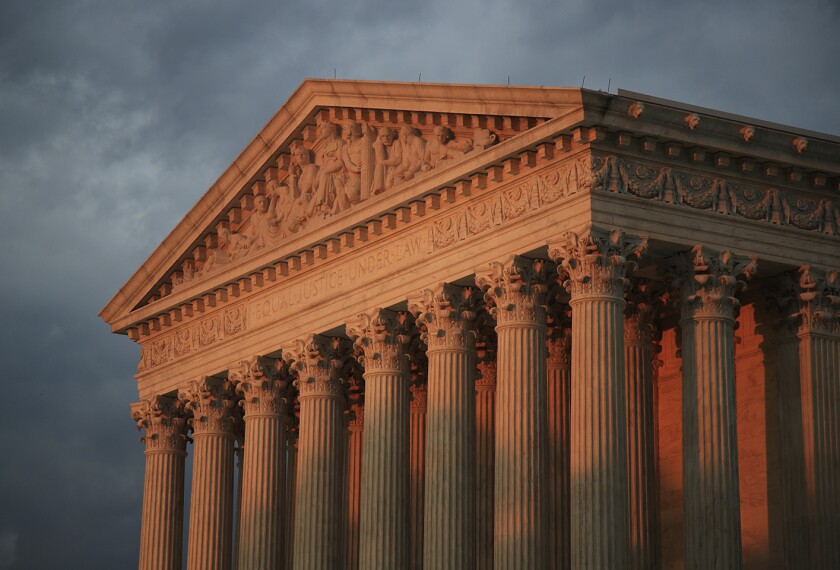The U.S. Supreme Court has declined to take up the appeal of a group of parents and students who objected to an Oregon school district’s policy of allowing transgender students to use restrooms, locker rooms, and showers matching their gender identity.
The challengers sued over the policy of the 3,000-student Dallas, Ore., school district, which adopted its student safety plan after a student at Dallas High School who was born biologically female began identifying as male in 2015. The plan allowed the student to use facilities matching his gender identity and included training for staff and lessons for students against bullying and harassment.
The parents and students objected to the policy as a form of sex discrimination that violated Title IX of the Education Amendments of 1972, as well arguing that their parental and privacy rights were infringed.
Both a federal district court and a panel of the U.S. Court of Appeals for the 9th Circuit, in San Francisco, upheld the school district’s policy.
“We ... hold that a policy that treats all students equally does not discriminate based on sex in violation of Title IX, and that the normal use of privacy facilities does not constitute actionable sexual harassment under Title IX just because a person is transgender,” the 9th Circuit panel ruled in February. “We hold further that the Fourteenth Amendment does not provide a fundamental parental right to determine the bathroom policies of the public schools to which parents may send their children.”
In their appeal of that ruling in Parents for Privacy v. Barr (Case No. 20-62), the parents and students (and two parental organizations) said the district’s policy “interferes with parents’ rights to direct the upbringing of their children, schoolchildren’s rights to bodily privacy, parents’ and children’s rights to free exercise of religion, and children’s rights to be free from hostile educational environments under Title IX.”
The appeal also said the case would give the justices the chance to address questions left unanswered in their June decision in Bostock v. Clayton County, Ga., which held that transgender employees were protected by federal anti-discrimination law.
The Dallas district, in a brief urging the high court not to hear the case, pointed out that the transgender boy who inspired the policy used facilities corresponding to his gender identity without incident before graduating.
The challengers “are not using Title IX to ensure that they have equal access to bathrooms and locker rooms as compared to members outside their protected class. Rather, they are trying to use Title IX to take away something which the school district granted the transgender boy to ensure that he was not denied equal access to bathrooms or locker rooms just because his gender did not match the gender typically associated with his sex at birth.”
The justices on Dec. 7 declined without comment to hear the parents’ and students’ appeal.






